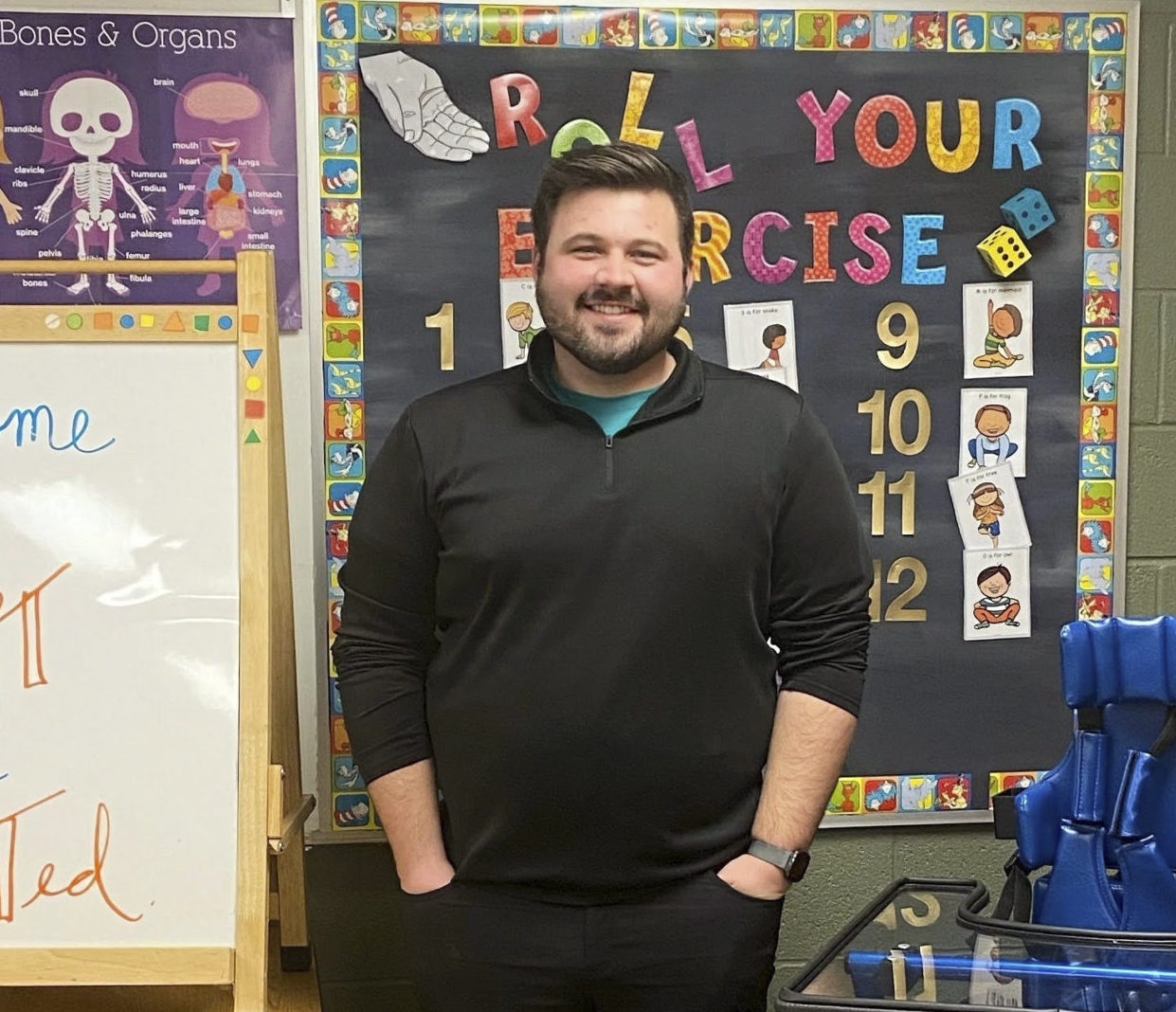Member Spotlight on Ted Dechane: Making Opportunities for Kids
Ted DeChane, PhD, is a physical therapist in Mt. Clemens who works with about 30 children a year who have physical and health impairments. Now the 31-year-old is coping with a chronic health problem—Long COVID—but continues working and fundraising for a new playground for his students.

What is your role in the school district?
I work in a special education program for students who have physical impairments that helps them get extra therapy at school and equipment so they can participate in school with their gen-ed peers.Whether it’s getting them special classroom seating or adapting their gym class, we’re constantly problem-solving alongside them and their teachers, so they can be a part of the school as much as they want to.
What led you to start fundraising for a new playground structure?
All of our playground equipment uses stairs as an entry point to get up to the playground. A lot of our kids can do that with adult support, and some cannot do that even with adult support. But a playground should be an area where kids can interact together without adult support. I just want them to have the same opportunity as everybody else. I started looking at getting a wheelchair-accessible playground installed, and it’s just very expensive, so I started applying for grants.
Have you had any success?
I applied for several grants without luck, but finally I found a grant through the Christopher and Dana Reeve Foundation and after a long application process they chose me. So we have $25,000, about half of our project goal. We’re working on getting the rest.
Meanwhile, you’ve had a long struggle with Long COVID. What’s that like?
I had a very classic bout with COVID back in March of 2020 and thought I’d be good after two weeks. But when I tried to get back into running and going to work and everything, I couldn’t get back into the swing of things. I’d be stuck on the couch for two days after going for a mile run. If I worked all day, I would fall asleep on the couch right when I got home.
Is it improving?
Yeah, it’s way better, but I’m still not to the point where I can exercise comfortably. If I have to exercise, I would probably have to call into work the next day, because I would be that tired. It zaps the energy out of me, so my tolerance for movement is pretty low. But I continue to see different specialists, and I have seen incremental progress. It’s very, very, very slow, but I’m better than I was a year ago, which is better than I was a year before that. So I’m hopeful that I’ll be back at it eventually.
You’re a founding member and social media director of Long COVID Physio, an international peer support, education and advocacy group. What is its goal?
Our initial goal is to provide peer support for healthcare professionals suffering Long COVID. But since some of us have gotten better, we’ve shifted focus to research and advocacy and education. We’re working with communities of other post-viral illnesses, because this is not the first post-viral illness that has existed. We’re learning and trying to get the word out about different treatment styles, and that exercise can actually cause setbacks. We have lots of resources out there, since the numbers continue to be high.
You’re also vice-president of your local union. What made you take on a leadership role three years into your school career?
It was a need that I saw, and there was a gap, so I filled it. I like looking out for everybody, so it seemed like a good way to help advocate for us as a staff, making sure that we have the best for ourselves so we can provide the best for our students.



